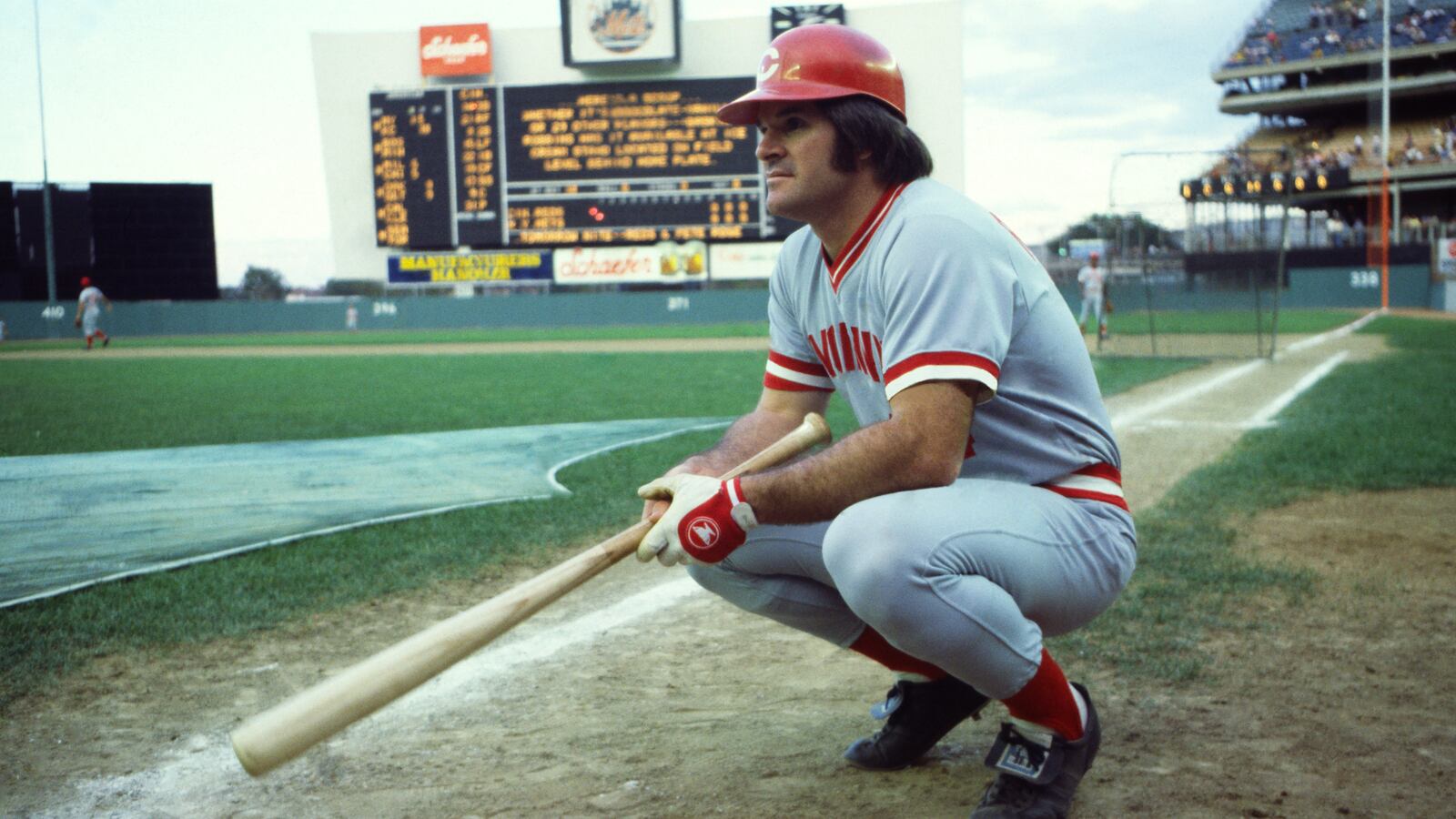Pete Rose, the greatest hitter in Major League Baseball and a 17-time All-Star, has died. He was 83.
Rose died on Monday at his home in Las Vegas, Nevada, his agent told TMZ Sports. A spokesperson for the Clark County medical examiner subsequently confirmed the news to the Associated Press, adding that a cause and manner of death had not yet been determined.
His longtime team, the Cincinnati Reds, tweeted shortly after that they were “heartbroken” to learn of his passing.
Rose played 3,562 games across five different positions during a 24-year career, all but six of which he played with the Reds. Among other records unlikely to be broken anytime soon: His 15,890 plate appearances, his 14,053 at-bats, and his monstrous 4,256 hits.
“He doesn’t swing at a pitch,” the legendary sportswriter Jim Murray once observed of Rose. “He pounces on it. Like a leopard going after a zebra. Then, he grabs his batting helmet with one hand and goes tearing down to first base as if every hound in hell were chasing after him.”
Along the way, “Charlie Hustle,” as he was known, won three batting titles, two Gold Gloves, and was named National League Rookie of the Year after his debut season with the Reds in 1963.
He also won the World Series three times, twice with the Reds as a key part of its celebrated “Elite Eight” lineup in the “Big Red Machine” of 1975 and 1976, and once with the Philadelphia Phillies in 1980.

Pete Rose of the Reds dives into home plate past the glove of Giants’ catcher Dave Rader.
Getty ImagesRose settled into a comfortable second wind coaching and then managing the Reds, a post-retirement life that came crashing down around him in 1989, when reports emerged that he’d gambled on games, both as a player and as a coach.
A. Bartlett Giamatti, then the MLB’s commissioner-elect, put Justice Department lawyer John Dowd to work investigating the claims. In June, four months after opening his inquiry, Dowd submitted a damning 225-page report with 84 exhibits attached, concluding that Rose had placed dozens of bets on games in 1985, 1986, and 1987.
Rose fiercely denied the findings, including under oath, telling “baseball investigators in a deposition he bet on horse races, dog races, professional and college basketball, and professional and college football,” but never baseball, The Washington Post reported at the time.

Pete Rose as he connects for hit 4,192 and a new baseball career hit record.
Getty ImagesUnder the weight of Dowd’s report, however, Rose had little choice but to accept a lifetime ban from baseball in August 1989. It marked the most severe penalty ever exacted “against an established baseball personality for betting,” as The New York Times put it.
Three years after that, the Hall of Fame decided that players placed on the league’s permanently ineligible list would never be granted consideration, all but blackballing a man who’d once been baseball royalty.
Around 15 years later, Rose finally acknowledged that he’d indeed gambled on games, including some involving his beloved Reds, but insisted he never bet against his own team. He freely admitted that his mea culpa, pegged to his 2004 autobiography, My Prison Without Bars, was made in the hopes that MLB might reconsider his lifetime ban.

Reds manager Pete Rose holds an impromptu press conference in the dug out prior to their game against the St. Louis Cardinals, during the middle of an investigation by the baseball commissioners’ office into his alleged gambling.
Getty Images“I can’t change it, it’s happened,” Rose told ABC News. “And sitting here in my position, you’re just looking for a second chance.”
Some critics saw the move as a calculated attempt to elbow his way into the public’s good graces and, possibly, the Hall of Fame. “What is the motive?” Jim Gray, a sportscaster then working for ESPN, asked the Post. “Is the motive to get into the Hall of Fame? To get back on the field? Or is the motive to sell books because you need money?”
Whatever the reason, the league denied Rose the rehabilitation he was seeking. Eight months after Rose formally appealed his case in April 2015, Commissioner Rob Manfred announced that the ban would remain in place, saying he hadn’t presented “credible evidence of a reconfigured life.”
Rose’s lawyers said in a statement at the time that they were disappointed with the decision.
“Pete’s fall from grace is without parallel but he recognizes that it was also of his own making,” they said, according to ESPN. “As such, Pete seeks to be judged not just by the mistakes of his past, but also by the work he has done over the last three decades to take responsibility for his actions.”

Former MLB player Pete Rose looks on prior to a game in Philadelphia.
Mitchell Leff/Getty ImagesWith Manfred’s blessing, Rose continued to make appearances in ceremonial activities connected to the league. And the next year, he became the last member of the Elite Eight to be inducted into the Reds’ Hall of Fame.
At the ceremony, wearing a button-down with “Hit King” monogrammed on both collars, Rose called the honor “the biggest thing to ever happen to me in baseball.”
He added, “I could spend five days thanking the people of Cincinnati. You motivated me to play the way I did. I wasn’t diving for me. I was diving for you. I was hitting for you. I was trying to score runs for you.”






